
Upstream
Upstream
- 1 hour 13 minutes[UNLOCKED] From the Frontlines: Revolutionary Disaster Response in Los Angeles w/ Gage and Sean of All Power Books
One thing that has become quite clear in recent decades is that the best form of disaster preparedness is …community. Being plugged into an organized community can make all the difference when disasters hit. This is just as true for the slow violence perpetrated against all of us under capitalism as it is for responding to emergencies like hurricanes, earthquakes, floods, or wildfires.
In today’s episode, we’re going to be talking about organizing in our communities—specifically focusing on some of the organizing taking place in response to the LA wildfires—but also zooming out much more broadly to talk about organizing in general. It’s the inaugural episode of our organizing series here on Patreon, taking deep dives into a wide variety of different organizing spaces and issues, from immigration to labor to issues around abortion access and trans rights and much more.
Although we focus most of our political education work on upstream root causes—taking deep dives into many radical ideas and revolutionary theories—it’s crucial to also focus on the practice itself, the on-the-ground work taking place on the frontlines, so that we can, as Frank Chapman has so eloquently put it, also practice our way into correct thinking. And, of course, as Fred Hampton famously put it: "Theory's cool, but theory with no practice ain't shit. You got to have both of them—the two go together."
In this inaugural episode, we’ve invited on two friends and comrades from the incredible All Power Books in Los Angeles to talk about their involvement in the grassroots, community response to the fires whose impacts are still being felt—and will be for years—on the broader Los Angeles population.
Gage is a co-founder of All Power Books as well as an artist whose work is featured prominently at All Power. Sean is a co-founder and leader of the All Power Free Clinic. All Power Books is a radical bookstore and community space in the West Adams neighborhood of Los Angeles. They co-hosted our very first live episode last year with Abby Martin.
In this conversation we talk about Gage and Sean’s experiences during the first hours of the fires which erupted on January 7th. We talk about the emergence of mutual aid and survival programs which focus specifically on disaster response, the challenges and lessons that emerge from this kind of work, the role that disaster plays in capitalism, how to build class consciousness and infuse on-the-ground survival work with political education, the failure of the official response, All Power’s free clinic, and much more.
Outro music by Stick to Your Guns
Further resources:
- All Power Books
- Support All Power Books
- AP Free Clinic
- Socialist Rifle Association
- Chinatown Community for Equitable Defense (CCED)
- Palms Unhoused Mutual Aid (PUMA)
- Aetna Street Solidarity
- Ktown For All
- Southbay Mutual Aid Care Club
- People's Struggle San Fernando Valley
- A Paradise Built in Hell, Rebecca Solnit
- Mutual Aid LA
- Midnight Books
- Mask Bloc LA
Related episodes:
- Capitalism, The State, and How We Got Here with Christian Parenti
- Breaking the Chains of Empire w/ Abby Martin (Live Show)
Upstream is a labor of love — we couldn't keep this project going without the generosity of our listeners and fans. Subscribe to our Patreon at patreon.com/upstreampodcast or please consider chipping in a one-time or recurring donation at www.upstreampodcast.org/support
If your organization wants to sponsor one of our upcoming documentaries, we have a number of sponsorship packages available. Find out more at upstreampodcast.org/sponsorship
For more from Upstream, visit www.upstreampodcast.org and follow us on Twitter, Instagram, Facebook, and Bluesky. You can also subscribe to us on Apple Podcasts, Spotify, or wherever you listen to your favorite podcasts.
21 January 2025, 4:00 am - 1 hour 1 minuteTechnofeudalism w/ Yanis Varoufakis
Technofeudalism—you might already have some sense of what the term means, even if you haven’t sat down and unpacked it fully. A mode of production with one hand in the past and another the future—an updated form of feudal relations married to an advanced epoch of the productive forces that mark late capitalism—forces that we often associate with futuristic feats of technology. Except this is not some kind of techno-utopia—it’s really a dystopia.
Is capitalism over? Have we entered into a new mode of production defined by feudal relations and the technological forces of the algorithm? Did capitalism die, before our very eyes, in 2008? These are all questions that we tackle in today’s episode with a very special guest who’s written a book about all of this.
Yanis Varoufakis is a self-described anti-economist and author of many books. He was a member of Syriza and was Greece's Minister of Finance between January 2015 and July 2015, negotiating on behalf of the Greek government during the 2009-2018 Greek government-debt crisis. Since 2018, he has been Secretary-General of Democracy in Europe Movement 2025 (DiEM25) which is a left-wing pan-European political party he co-founded in 2016. His latest book is Technofeudalism: What Killed Capitalism, which we’ll be discussing in today’s episode.
Further Resources
- Technofeudalism: What Killed Capitalism, Yanis Varoufakis
- Another Now: Dispatches from an Alternative Present, Yanis Varoufakis
- Democracy in Europe Movement 2025 (DiEM25)
- "How to Be an Anticapitalist in the Twenty-First Century" by Erik Olin Wright
- Progressive International
- Make Amazon Pay
Related Episodes:
Cover art: B. Mure Intermission music: "No State Solution" by Zombie Giuliani
Upstream is a labor of love—we couldn't keep this project going without the generosity of our listeners and fans. Subscribe to our Patreon at patreon.com/upstreampodcast or please consider chipping in a one-time or recurring donation at www.upstreampodcast.org/support
If your organization wants to sponsor one of our upcoming documentaries, we have a number of sponsorship packages available. Find out more at upstreampodcast.org/sponsorship
For more from Upstream, visit www.upstreampodcast.org and follow us on Twitter, Instagram, Facebook, and Bluesky. You can also subscribe to us on Apple Podcasts, Spotify, or wherever you listen to your favorite podcasts.
14 January 2025, 4:00 am - 16 minutes 19 seconds[TEASER] World on Fire
This is a free preview of the episode "World on Fire." You can listen to the full episode by subscribing to our Patreon here: https://www.patreon.com/upstreampodcast
As a Patreon subscriber you'll get access to at least one bonus episode a month (usually two or three), our entire back catalog of Patreon episodes, early access to certain episodes, and other benefits like stickers and bumper stickers—depending on which tier you subscribe to. access to bi-weekly bonus episodes ranging from conversations to readings and more. Signing up for Patreon is a great way to make Upstream a weekly show, and it will also give you access to our entire back catalog of Patreon episodes along with stickers and bumper stickers at certain subscription tiers. You’ll also be helping to keep Upstream sustainable and allowing us to keep this project going.
In this bonus Patreon episode, Robbie takes some time to reflect on the fires in the LA area and reads a piece that he wrote for Huffington Post which exposed the privatization of firefighting services during the 2018 Woolsey Fire in LA.
This episode in our reading series covers a wide variety of topics from climate change, forest mismanagement, how neoliberalism shapes our municipalities, the rise of fascism and cop cities, the role of mutual aid, the rise of private firefighting services (and the rich assholes who utilize them while simultaneously working for the defunding of public services), the oligarchs who run California's agriculture industry, the connection between imperialism and climate change, and much more.
Further resources:
- "As California’s Wildfires Raged, The Ultra-Rich Hired Private Firefighters," Robert Raymond
- All Power Books
- Midnight Books
- PSL Los Angeles
- The People's Struggle San Fernando Valley
- Mutual Aid LA
- A Paradise Built in Hell, Rebecca Solnit
Related episodes:
- [UNLOCKED] Oil, Monopoly Capitalism, and Imperialism w/ Adam Hanieh
- The Curse w/ Carlee
- Breaking the Chains of Empire w/ Abby Martin (Live Show)
- Disabled Ecologies w/ Sunaura Taylor
Upstream is a labor of love — we couldn't keep this project going without the generosity of our listeners and fans. Subscribe to our Patreon at patreon.com/upstreampodcast or please consider chipping in a one-time or recurring donation at www.upstreampodcast.org/support
If your organization wants to sponsor one of our upcoming documentaries, we have a number of sponsorship packages available. Find out more at upstreampodcast.org/sponsorship
For more from Upstream, visit www.upstreampodcast.org and follow us on Twitter, Instagram, Facebook, and Bluesky. You can also subscribe to us on Apple Podcasts, Spotify, or wherever you listen to your favorite podcasts.
11 January 2025, 12:15 am - 39 minutes 20 seconds[TEASER] Four Ways to Be Anticapitalist
This is a free preview of the episode "Four Ways to Be Anticapitalist." You can listen to the full episode by subscribing to our Patreon here: https://www.patreon.com/upstreampodcast
As a Patreon subscriber you'll get access to at least one bonus episode a month (usually two or three), our entire back catalog of Patreon episodes, early access to certain episodes, and other benefits like stickers and bumper stickers—depending on which tier you subscribe to. access to bi-weekly bonus episodes ranging from conversations to readings and more. Signing up for Patreon is a great way to make Upstream a weekly show, and it will also give you access to our entire back catalog of Patreon episodes along with stickers and bumper stickers at certain subscription tiers. You’ll also be helping to keep Upstream sustainable and allowing us to keep this project going.
Can capitalism be reformed? Or does it have to be smashed? This is an age-old question that has generated much discussion, debate, and disagreement on the left. In this episode of our Patreon reading series, Della joins Robert to discuss these questions within the context of a Jacobin piece written by the late Erik Olin Wright, "How to Be an Anticaptialist Today."
Can capitalism be tamed? Can it be eroded? Can it be escaped? Or must it be smashed? In exploring and answering these questions, Della and Robert cover a wide variety of topics from historical materialism, Marxism, Leninism, anarchism, prefigurative politics, and much, much more. We synthesize learnings from many of our recent episodes, explore how we've developed in our analysis since some of our older episodes, bring in explorations of history and theory, and explore what has changed and shifted in the last decade of capitalism in the West.
Further resources:
- "How to e an Anticapitalist Today," Erik Olin Wright
- Zen and the Art of Motorcycle Maintenance: An Inquiry into Values, Robert Pirsig
- The Long Transition Towards Socialism and the End of Capitalism, Torkil Lauesen
- The State and Revolution, V. I. Lenin
- The Revolutionary Science of Marxism-Leninism, Joshua Sykes
Related epsides:
- Universal Basic Income Pt. 1: an idea whose time has come?
- Universal Basic Income Pt. 2: a bridge towards post-capitalism?
- Why Women Have Better Sex Under Socialism w/ Kristen Ghodsee
- Better Lives For All w/ Jason Hickel
- Historical Materialism w/ Torkil Lauesen
- The Logical Case for Socialism (and Against Capitalism) w/ Scott Sehon
- Palestine Pt. 14: Decolonial Marxism w/ Patrick Higgins
- Imperialism, The Highest Stage of Capitalism w/ Breht O'Shea and Alyson Escalante
- Prefigurative Politics and Workplace Democracy w/ Saio Gradin and Nicole Wires
- Dialectical Materialism w/ Joshua Sykes
- Worker Cooperatives Pt. 1 & 2
7 January 2025, 4:00 am - 2 hours 8 minutesImperialism, The Highest Stage of Capitalism w/ Breht O'Shea and Alyson Escalante
Capitalism, imperialism, monopoly—far from being separate concepts that just happen to take shape parallel to one another or to overlap from time to time, these terms all really refer to the exact same overall process. We call it capitalism because it’s not always practical to call it “monopoly capitalism in its imperialist stage” or something like that, but really, capitalism is, as we’ll see, inevitably monopolistic and imperialist.
The process of capitalism’s historical evolution from its so-called, and somewhat fabricated stage of free-enterprise to monopoly capitalism, and then further into what we refer to as imperialism, was outlined both theoretically and empirically by Vladamir Lenin well over a century ago in his classic text, Imperialism, The Highest Stage of Capitalism. The connection between monopoly and imperialism might not seem quite straightforward to you at first, and an understanding of imperialism itself as a process grounded in political economy may seem somewhat counterintuitive—especially if you’re used to thinking of imperialism and empire in the more popular sense of the words. But that’s why we’ve brought on two guests to walk us through this crucial text and help us make sense of it all.
Alyson Escalante and Breht O’Shea are the hosts of Red Menace, a podcast that explains and analyzes revolutionary theory and then applies its lessons to our contemporary conditions, and they’re both return guests of the show. In fact, they’ve been on a number of times to talk about other texts by Lenin but also to explore a wide variety of topics from trans liberation to revolutionary Buddhism. Breht is also the host of the terrific podcasts Revolutionary Left Radio and Shoeless in South Dakota.
In this episode, we unpack Lenin’s Imperialism, The Highest Stage of Capitalism. This episode is an excellent introduction to the text but it also takes deep dives and gets granular at times, picking apart the nuances and various interpretations of the text. We explore the historical context in which Lenin wrote this book and then trace capitalism’s history from its early stages into its monopoly form. We explore how finance capital emerged and became similarly concentrated, how this merging of concentrated finance and industrial capital began to spread out from capitalist countries into the periphery and began to carve up the world, and how this process led to what we now understand to be capitalism’s final and highest stage: imperialism. And, of course, we apply the text to a variety of current events and explore how we can apply Lenin’s ideas in ways that help us grow and strengthen our socialist movements globally.
Further Resources
- Red Menace: Imperialism, The Highest Stage of Capitalism, V. I. Lenin
- Imperialism, the Highest Stage of Capitalism, V. I. Lenin
- Red Menace
- Revolutionary Left Radio
- Shoeless in South Dakota
Related Episodes:
- Historical Materialism w/ Torkil Lauesen
- Breaking the Chains of Empire w/ Abby Martin (Live Show)
- [UNLOCKED] How the North Plunders the South w/ Jason Hickel
Cover art: From WellRed Books' edition of Imperialism, The Highest Stage of Capitalism Intermission music: "Fallin' Rain" by Link Ray
Upstream is a labor of love—we couldn't keep this project going without the generosity of our listeners and fans. Subscribe to our Patreon at patreon.com/upstreampodcast or please consider chipping in a one-time or recurring donation at www.upstreampodcast.org/support
If your organization wants to sponsor one of our upcoming documentaries, we have a number of sponsorship packages available. Find out more at upstreampodcast.org/sponsorship
For more from Upstream, visit www.upstreampodcast.org and follow us on Twitter, Instagram, Facebook, and Bluesky. You can also subscribe to us on Apple Podcasts, Spotify, or wherever you listen to your favorite podcasts.
31 December 2024, 4:00 am - 25 minutes 47 seconds[TEASER] The More Than Human World
This is a free preview of the episode "The More Than Human World" You can listen to the full episode by subscribing to our Patreon here: https://www.patreon.com/upstreampodcast
As a Patreon subscriber you'll get access to at least one bonus episode a month (usually two or three), our entire back catalog of Patreon episodes, early access to certain episodes, and other benefits like stickers and bumper stickers—depending on which tier you subscribe to. You’ll also be helping to keep Upstream sustainable and allowing us to keep this project going. Find out more at Patreon.com/upstreampodcast or at upstreampodcast.org/support. Thank you.
"The More Than Human World" is a phrase that I (Robbie) came across years ago when reading David Abrams's book The Spell of the Sensuous." It immediately struck me as a profound and beautiful perspective on how we perceive of and imagine the world of beings that make up the world that does not include humans. Everything else. And yes, it is more than. Much more than. Especially in an anthropocentric social order that barely values the lives and beings of humans themselves, let alone beings which are not human.
Today's Patreon episode is a reading of a beautiful story told by the author and philosopher Loren Eiseley. The story is about birds, machines, and much more, and is aptly titled "The Bird and the Machine"—just one chapter in a book of stories and essays written by Loren Eisley titled The Star Thrower.
You might want to keep a box of kleenex close by, this one gets a little emotional.
Covert art: Carolyn Raider
Further resources:
- Dispossessing the Wilderness Indian Removal and the Making of the National Parks, Mark David Spence
- The Star Thrower, Loren Eiseley
- Loren Eiseley Society
- Mount Eerie
Related episodes:
Upstream is a labor of love — we couldn't keep this project going without the generosity of our listeners and fans. Subscribe to our Patreon at patreon.com/upstreampodcast or please consider chipping in a one-time or recurring donation at www.upstreampodcast.org/support
If your organization wants to sponsor one of our upcoming documentaries, we have a number of sponsorship packages available. Find out more at upstreampodcast.org/sponsorship
For more from Upstream, visit www.upstreampodcast.org and follow us on Twitter, Instagram, Facebook, and Bluesky. You can also subscribe to us on Apple Podcasts, Spotify, or wherever you listen to your favorite podcasts.
24 December 2024, 4:00 am - 1 hour 30 minutesA Solstice Celebration for 2024 w/ Manda Scott and Nathalie Nahai
Happy Solstice! In this annual tradition, Della is joined by two fellow podcast hosts to reflect on the past year and set some intentions for the year ahead.
Manda Scott is a novelist, smallholder, and host of the podcast Accidental Gods, which showcases individuals and organizations at the emerging edge of our world to set the foundation for a future we’d be proud to leave to the generations that come after us. Manda’s latest novel, Any Human Power, is out now and available here.
Nathalie Nahai is a behavior science advisor, author and host of the podcast The Hive, which focuses on psychology, technology, and human behavior. Nathalie is the author of Webs Of Influence: The Psychology of Online Persuasion and is also the founder of Flourishing Futures Salon, a project that offers curated gastronomical gatherings that explore how we can thrive in times of turbulence and change.
One of Della’s offerings in the new year is a course she designed about how to cultivate regenerative livelihoods. She created this course with insights that she has found most helpful in bringing Upstream theories and ideas into people’s lives as a Right Livelihood coach. Whether you are in a livelihood transition, want to be in community with others trying to find meaningful work, or you just want to know more about work as a vehicle for post capitalist systems change, this course is a great fit. It includes live sessions, engaging module materials and activities including Upstream episodes, and a lively discussion forum to bring the material to life. Here is the link to learn more and register and use "UPSTREAM25" for a special 25% off coupon.
Further Resources:
- A Winter Solstice Celebration for 2023 with Manda Scott and Nathalie Nahai
- [UNLOCKED] How the North Plunders the Global South w/ Jason Hickel
- Better Lives for All w/ Jason Hickel
- Walter Rodney, Marxism, and Underdevelopment w/ D. Musa Springer & Charisse Burden-Stelly
- Breaking the Chains of Empire w/ Abby Martin (Live Show)
- Righteous Indignation, Love, and Running for President w/ Dr. Cornel West
- [UNLOCKED] Voting for Socialism w/ Claudia De La Cruz & Karina Garcia
- Battling the Duopoly w/ Jill Stein
Related Episodes:
- Down the Rabbit Hole
- Transformative Adaptation
- How to Be an An Anticapitalist in the Twenty-first Century (book)
- How to be an Anti-Capitalist in the 21st Century (Jacobin article)
- God, Human, Animal, Machine
- The Psychological Drivers of the MetaCrisis
- Feeding Your Demons, Tsultrim Allione
- Feeding your Demons (Lion's Roar article)
- Winter Solstice Meditation
- Summer Solstice Meditation
Upstream is a labor of love—we couldn't keep this project going without the generosity of our listeners and fans. Subscribe to our Patreon at patreon.com/upstreampodcast or please consider chipping in a one-time or recurring donation at www.upstreampodcast.org/support
If your organization wants to sponsor one of our upcoming documentaries, we have a number of sponsorship packages available. Find out more at upstreampodcast.org/sponsorship
For more from Upstream, visit www.upstreampodcast.org and follow us on Twitter, Instagram, Facebook, and Bluesky.
You can also subscribe to us on Apple Podcasts, Spotify, or wherever you listen to your favorite podcasts.
21 December 2024, 4:00 am - 1 hour 58 minutesHistorical Materialism w/ Torkil Lauesen
Historical materialism is the science of Marxism. It’s the theory developed by Marx and Engels that explains how human societies develop and change over time based on economic organization. Like Darwin’s theory of evolution through natural selection, historical materialism serves as a powerful tool in understanding the world around us. It explains why societies are arranged the way that they are, why there are classes, why revolutions happen—and when taken together with the Marxist philosophy of dialectical materialism, historical materialism becomes a rigorous scientific tool for analyzing the entire world and, most importantly, acting within it.
Everybody on this planet would benefit greatly from having a clear understanding of historical materialism, and every Marxist should at least understand the basics of it. And in this episode, we’re going to provide an introductory exploration of historical materialism, along with dialectical materialism, which is deeply intertwined with the former. And we’ve brought on the perfect guest to help us to do this.
Torkil Lauesen is an activist and a writer from Denmark who has spent the last fifty years immersed in the study and praxis of historical materialism. Torkil spent many years in his youth engaged in both legal and illegal activities with the purpose of materially supporting anti-imperialist struggles in the Third World, including in Palestine. He spent a decade in prison for this work.
This episode is part of our ongoing series on Marxist philosophy and theory. The first episode in this series takes a close look at dialectical materialism with Josh Sykes as our guest and was published in June of 2024. This episode serves as a follow-up to that episode, but can also be listened to on its own. Historical materialism and dialectical materialism are deeply intertwined, so having a solid understanding of dialectics will help you understand historical materialism—but we do explore both dialectics and historical materialism in this episode.
We also explore concepts from Torkil’s latest book, The Long Transition Towards Socialism and the End of Capitalism, published this last November by Iskra Books, along with many fascinating topics related to historical materialism that span from Marx’s concepts of use value and exchange value, the history of the transition from feudalism to capitalism, anti-imperialism, neoliberalism, the rise of China, and much more.
Further Resources
- The Long Transition Towards Socialism and the End of Capitalism
- Iskra Books
- International Forum (Copenhagen)
- Arghiri Emmanuel Organization
- Anti-Dühring Herr Eugen Dühring's Revolution in Science, Frederick Engels
- Marx’s Ecology: Materialism and Nature, by John Bellamy Foster
- Monthly Review
- On Contradiction, Mao Zedong
- The Commodity (Capital Vol. 1), Karl Marx
- Empire, Michael Hardt and Antonio Negri
- The Revolutionary Science of Marxism-Leninism, Joshua Sykes
- Fossil Capital:The Rise of Steam Power and the Roots of Global Warming, Andreas Malm
- Grundrisse: Foundations of the Critique of Political Economy (Rough Draft), Karl Marx
- Forget Eco-Modernism, Kai Heron
- The Accumulation of Waste: A political economy of systemic destruction, Ali Kadri
- How much growth is required to achieve good lives for all? Insights from needs-based analysis, Jason Hickel and Dylan Sullivan
Related Episodes:
- Dialectical Materialism w/ Josh Sykes
- A History of the World in Seven Cheap Things with Raj Patel and Jason W. Moore
- Towards Socialism and the End of Capitalism: An Introduction
- Walter Rodney, Marxism, and Underdevelopment with D. Musa Springer & Charisse Burden-Stelly
- The Liberal Virus
- Degrowth vs Eco-Modernism
- Climate Leninism w/ Jodi Dean and Kai Heron
- Better Lives for All w/ Jason Hickel
Cover art: Carolyn Raider Intermission music: "gl0om" by heavy lifter
Upstream is a labor of love—we couldn't keep this project going without the generosity of our listeners and fans. Subscribe to our Patreon at patreon.com/upstreampodcast or please consider chipping in a one-time or recurring donation at www.upstreampodcast.org/support
If your organization wants to sponsor one of our upcoming documentaries, we have a number of sponsorship packages available. Find out more at upstreampodcast.org/sponsorship
For more from Upstream, visit www.upstreampodcast.org and follow us on Twitter, Instagram, Facebook, and Bluesky. You can also subscribe to us on Apple Podcasts, Spotify, or wherever you listen to your favorite podcasts.
17 December 2024, 4:00 am - 51 minutes 52 seconds[UNLOCKED] Anti-Fatness as Anti-Blackness w/ Da'Shaun Harrison
Anti-fatness as anti-Blackness. Being Black and fat in our capitalist, white-supremacist, ableist, heteronormative society is to live in a body that is subjected to a form of unique violence marked by policing, misdiagnosis, discrimination, abuse, trauma—the list goes on.
And anti-fatness and anti-Blackness are not simply two separate things—disparate nodes on a circuit of oppression—anti-fatness and anti-Blackness form a crucial intersection, and are ultimately one and the same, according to our guest, in terms of their history, structural, weaponization, and deployment by the ideological apparatuses of the capitalist state and the violence which it upholds.
In this episode, we’ll be discussing anti-fatness as anti-Blackness with Da'Shaun Harrison—a writer, editor, speaker, community organizer, co-executive director of Scalawag Magazine, and author of Belly of the Beast: The Politics of Anti-Fatness as Anti-Blackness, published by North Atlantic Books.
In this conversation, we explore the field of fat studies, the history of anti-fatness and anti-Blackness, why we should view anti-fatness as anti-Blackness, the eugenicist history of BMI—or the Body Mass Index—the need to stretch and grow abolition politics, the importance of unlearning supremacist ideology, and much more.
Further resources:
- Belly of the Beast: The Politics of Anti-Fatness as Anti-Blackness, published by North Atlantic Books
- Da'Shaun's LinkTree
- Roxanne Gay
- Fearing the Black Body: The Racial Origins of Fat Phobia, Sabrina Strings
- Heavy: An American Memoir, Kiese Laymon
- The Embodiment of Disobedience: Fat Black Women’s Unruly Political Bodies, Andrea Shaw
Related episodes:
Upstream is a labor of love — we couldn't keep this project going without the generosity of our listeners and fans. Subscribe to our Patreon at patreon.com/upstreampodcast or please consider chipping in a one-time or recurring donation at www.upstreampodcast.org/support
If your organization wants to sponsor one of our upcoming documentaries, we have a number of sponsorship packages available. Find out more at upstreampodcast.org/sponsorship
For more from Upstream, visit www.upstreampodcast.org and follow us on Twitter, Instagram, Facebook, and Bluesky. You can also subscribe to us on Apple Podcasts, Spotify, or wherever you listen to your favorite podcasts.
12 December 2024, 4:00 am - 18 minutes 38 seconds[TEASER] Towards Socialism and the End of Capitalism: An Introduction
This is a free preview of the episode "Towards Socialism and the End of Capitalism: An Introduction." You can listen to the full episode by subscribing to our Patreon here: https://www.patreon.com/upstreampodcast
As a Patreon subscriber you'll get access to at least one bonus episode a month (usually two or three), our entire back catalog of Patreon episodes, early access to certain episodes, and other benefits like stickers and bumper stickers—depending on which tier you subscribe to. You’ll also be helping to keep Upstream sustainable and allowing us to keep this project going. Find out more at Patreon.com/upstreampodcast or at upstreampodcast.org/support. Thank you.
"Sure, I agree that capitalism sucks—but what's the alternative? We tried socialism in the 20th century and it failed." We've all heard this line from well-meaning friends, family members, or any variety of interlocutors we happen to find ourselves in dialogue with in any variety of contexts. There are a lot of compelling and nuanced responses to this common position, and regardless of what you think of the idea itself, it's an important one for us on the left to be able to answer.
In this Patreon reading series, Robert reads a passage from a book that attempts to answer this question. The passage is the introductory chapter of the excellent new book, The Long Transition Towards Socialism and the End of Capitalism, by Torkil Lauesen. Published by Iskra Books.
What is the response to the idea that socialism is a failed ideology? Why should we see the transition from capitalism to socialism as a long struggle of experiments and struggles that, far from being fruitless, are essential parts of a world-historical struggle that is still playing out? Why is it important to center historical materialism in our analysis of the world? And why should we be more excited than ever at the prospects of human and more-than-human emancipation and thriving in a world organized under socialism? These are just some of the questions we tackle in this reading and analysis of the introductory chapter of The Long Transition Towards Socialism and the End of Capitalism, by Torkil Lauesen.
Further resources:
- Iskra Books
- The Long Transition Towards Socialism and the End of Capitalism, by Torkil Lauesen
- Hyper-Imperialism: A Dangerous Decadent New Stage, Tricontinental: Institute for Social Research
Related episodes:
- Dialectical Materialism w/ Josh Sykes
- Historical Materialism w/ Torkil Lauesen
- The Exhausted of the Earth w/ Ajay Singh Chaudhary
- Trans Liberation and Solidarity with Alyson Escalante
- Everyday Utopia and Radical Imagination with Kristen Ghodsee
- Prefigurative Politics and Workplace Democracy w/ Saio Gradin and Nicole Wires
Upstream is a labor of love — we couldn't keep this project going without the generosity of our listeners and fans. Subscribe to our Patreon at patreon.com/upstreampodcast or please consider chipping in a one-time or recurring donation at www.upstreampodcast.org/support
If your organization wants to sponsor one of our upcoming documentaries, we have a number of sponsorship packages available. Find out more at upstreampodcast.org/sponsorship
For more from Upstream, visit www.upstreampodcast.org and follow us on Twitter, Instagram, Facebook, and Bluesky. You can also subscribe to us on Apple Podcasts, Spotify, or wherever you listen to your favorite podcasts.
10 December 2024, 4:00 am - 1 hour 22 minutesHow to Be a Good Ancestor w/ Roman Krznaric
It's been said that “the shortest path to the future is always one through the deepening of the past.” But how do we balance the past, present, and future, when all three weigh so heavily on our consciousness and our social existence?
Perhaps one way to find a balance—or at least to distill these various webbed threads of temporality—might be to pose them as questions: what can we learn from the past to help us in the present? And how can I be a good ancestor for the people of tomorrow? These are the questions that inform and guide the recent work of our guest on today's episode.
Roman Krznaric is a social philosopher, a Research Fellow at the Centre for Eudaimonia and Human Flourishing, and the author of several books including most recently, History for Tomorrow: Inspiration from the Past for the Future of Humanity and The Good Ancestor: How to Think Long Term in a Short-Term World.
In this episode, we explore lessons from the past and what it means to be a good ancestor today. We look at how our conceptions of time can expand or limit the way that we answer these questions. We explore what it means to be on the radical fringes of a society, how to build and strengthen solidarity, and how to find meaning and community in a world that has grown increasingly isolating and alienating.
This episode was produced in collaboration with EcoGather, a collapse-responsive co-learning network that hosts free online Weekly EcoGatherings that foster conversation and build community around heterodox economics, collective action, and belonging in an enlivened world. In this collaboration, EcoGather will be hosting gatherings to bring some Upstream episodes to life—this is one of those episodes. We hope you can join the gathering on TK to discuss the topics covered in this episode. Find out more at www.ecogather.ing.
Further Resources
- The Good Ancestor: How to Think Long Term in a Short-Term World
- Radical climate protests linked to increases in public support for moderate organizations, Nature Sustainability
- The Muqaddimah: An Introduction to History, by Ibn Khaldûn
- The Ultimate Hidden Truth of the World…Essays, David Graeber
Related Episodes:
Cover art: Nina Montenegro Intermission music: “Seed of a Seed” by Haley Heynderickx
Upstream is a labor of love—we couldn't keep this project going without the generosity of our listeners and fans. Subscribe to our Patreon at patreon.com/upstreampodcast or please consider chipping in a one-time or recurring donation at www.upstreampodcast.org/support
If your organization wants to sponsor one of our upcoming documentaries, we have a number of sponsorship packages available. Find out more at upstreampodcast.org/sponsorship
For more from Upstream, visit www.upstreampodcast.org and follow us on Twitter, Instagram, Facebook, and Bluesky. You can also subscribe to us on Apple Podcasts, Spotify, or wherever you listen to your favorite podcasts.
3 December 2024, 4:00 am - More Episodes? Get the App
Your feedback is valuable to us. Should you encounter any bugs, glitches, lack of functionality or other problems, please email us on [email protected] or join Moon.FM Telegram Group where you can talk directly to the dev team who are happy to answer any queries.
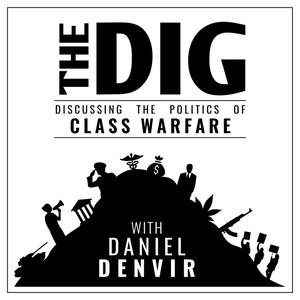 The Dig
The Dig
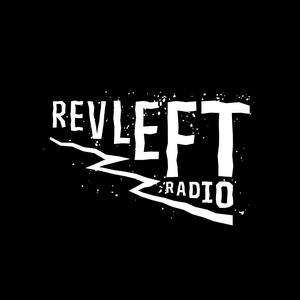 Revolutionary Left Radio
Revolutionary Left Radio
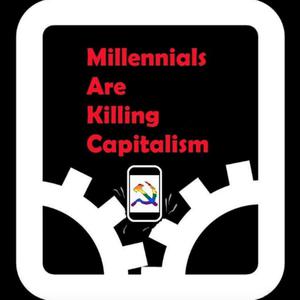 Millennials Are Killing Capitalism
Millennials Are Killing Capitalism
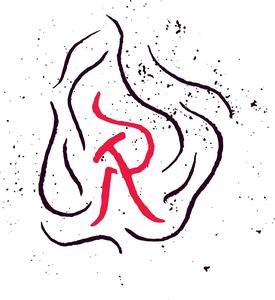 Red Menace
Red Menace
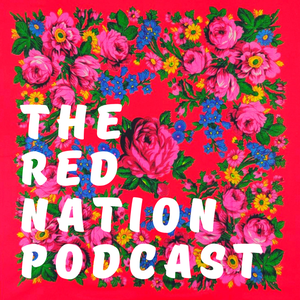 The Red Nation Podcast
The Red Nation Podcast
 Guerrilla History
Guerrilla History